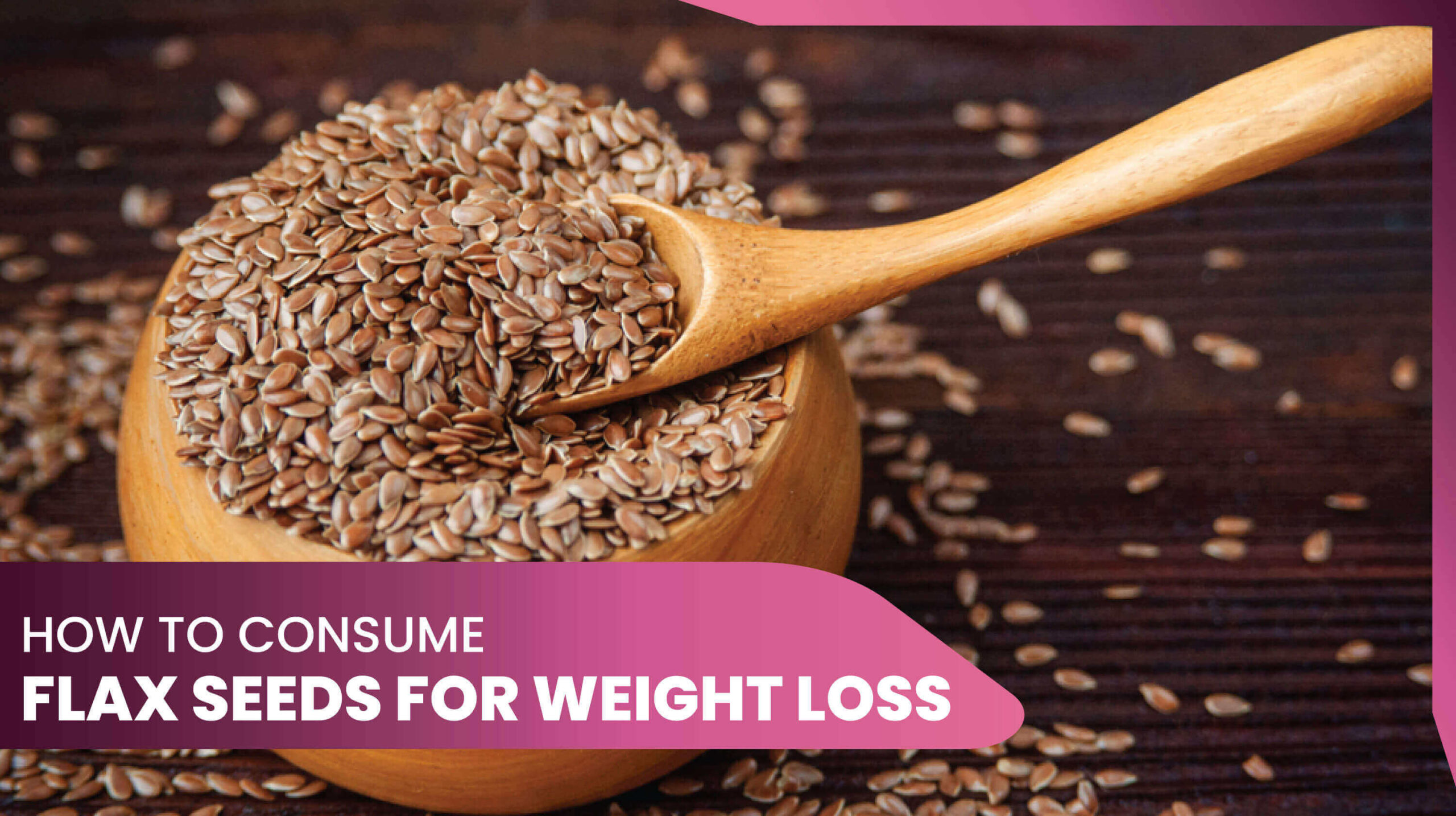In order to achieve a well-rounded and nutritious diet, it is crucial to include foods that are rich in nutrients. Flaxseeds, which are often praised for their exceptional health benefits, have become increasingly popular for their positive effects on weight management. I would like to guide you through my blog where I will explain the reasons behind flax seeds being beneficial for weight loss, as well as provide suggestions on how to incorporate them into a balanced and wholesome eating regimen.
What are Flax Seeds?
Flax seeds, also known as linseeds, are tiny, oval-shaped seeds that come from the flax plant (Linum usitatissimum). They have been cultivated for thousands of years and have been recognized for their nutritional benefits. Flaxseeds are typically brown or golden in color and have a slightly nutty flavour.
These seeds are highly valued for their rich nutritional profile.
Nutritional Value of Flaxseeds
Here is an overview of the key nutrients found in a 1-ounce (28-gram) serving of flaxseeds:
| Nutrient | Amount |
|---|---|
| Calories | 152 kcals |
| Carbohydrates | 8.2 grams |
| Protein | 5.2 grams |
| Fat | 12.2 grams |
| Saturated Fat | 1.0 grams |
| Monounsaturated Fat | 2.2 grams |
| Polyunsaturated Fat | 7.7 grams (including omega-3 and omega-6 fatty acids) |
| Fiber | 7.7 grams |
| Sugar | 0.8 grams |
In addition to macronutrients and micronutrients, flaxseeds are rich in various beneficial compounds:
- Omega-3 Fatty Acids
- Fiber
- Lignans
- Phytochemicals
The Recommended Daily Intake of Flaxseeds is 1-2 tablespoons (10-20 g) of ground flax seeds per day.

Flax seeds are available in two forms: whole seeds and ground seeds (also known as flaxseed meal). While whole flax seeds have a longer shelf life, they are often difficult for the body to digest and absorb due to their hard outer shell. Ground flax seeds, on the other hand, are more easily digested and allow for better nutrient absorption.
5 Health Benefits of Flaxseeds for weight loss
- Rich in Fiber: Flaxseeds are an excellent source of dietary fiber. Fiber adds bulk to your diet, promoting feelings of fullness and reducing overall calorie intake. When consumed, flax seeds expand in the stomach, creating a sense of satiety and reducing the likelihood of overeating.
- Low in Calories: One of the key factors in weight loss is creating a calorie deficit, where you consume fewer calories than you burn. Flaxseeds are relatively low in calories but still provide a range of essential nutrients. With around 37 calories per tablespoon of ground flax seeds, they can be incorporated into your meals without significantly impacting your overall calorie intake.
- Healthy Fats: Flaxseeds are a rich source of alpha-linolenic acid (ALA), an omega-3 fatty acid that offers numerous health benefits. While healthy fats may seem counterintuitive for weight loss, they play a crucial role in promoting satiety, reducing inflammation, and supporting overall well-being.
- Supports Digestive Health: Maintaining a healthy digestive system is vital for weight management. Flax seeds contain both soluble and insoluble fiber, which contribute to better digestion. Soluble fiber absorbs water and forms a gel-like substance in the intestines, slowing down digestion and promoting a feeling of fullness. Insoluble fiber will add bulk to the stool, helping with regular bowel movements. A healthy digestive system ensures optimal nutrient absorption and waste elimination, supporting weight loss efforts.
- Versatile and Easy to Incorporate: Ground flaxseeds can be sprinkled onto yogurt, oatmeal, or salads, mixed into smoothies, or used as an egg substitute in baking. The adaptability of flax seeds makes it convenient to include them in your daily diet.
How to eat Flaxseeds for weight loss?
Flaxseeds are a rich source of dietary fiber, protein, and omega-3 fatty acids, which are known to have numerous health benefits, including aiding in weight loss. Here’s a brief introduction on how to consume flaxseeds for weight loss:
- Ground Flax Seeds: One crucial aspect of consuming flax seeds for weight loss is to consume them in their ground form. Grinding flax seeds ensures better digestion and allows your body to absorb their nutrients effectively. Whole flax seeds may pass through your system undigested, limiting their benefits. Invest in a coffee grinder or blender to grind your flax seeds at home, ensuring freshness and maximizing their nutritional value.
- Flax Seed Smoothies: Smoothies offer a convenient and delicious way to incorporate flax seeds into your diet. Add a tablespoon or two of ground flax seeds to your favourite fruit or vegetable smoothie. The fiber content in flax seeds helps keep you feeling full for longer, reducing the chances of overeating. Additionally, the omega-3 fatty acids present in flax seeds can support overall well-being while aiding in weight loss.
- Flax Seeds in Yogurt or Oatmeal: Boost the nutritional profile of your morning routine by sprinkling ground flax seeds onto your yogurt or oatmeal. Not only does it add a subtle nutty flavor, but it also increases the fiber content of your meal. The combination of protein and fiber will keep you satisfied, preventing unnecessary snacking throughout the day. Be mindful of portion sizes and gradually increase your intake as your body adjusts.
- Flax Seeds as a Salad Topper: Salads are an excellent option for weight loss, and flax seeds can provide an extra nutritional kick. Sprinkle ground flax seeds onto your salads as a healthy topping. The combination of fiber and healthy fats will not only enhance the taste but also promote satiety and prevent overeating.
- Flax Seed Crackers or Energy Bars: For those seeking a convenient on-the-go snack, consider incorporating flax seeds into homemade crackers or energy bars. By combining ground flax seeds with other nutritious ingredients such as nuts, seeds, and natural sweeteners like honey or dates, you can create a satisfying and nutrient-dense snack. These homemade options are free from preservatives and artificial additives often found in store-bought alternatives.
6 Flax Seeds Benefits for Females
Flax seeds offer several health benefits for females due to their nutritional composition. Here are some key benefits of flax seeds for women:
- Hormonal Balance: Flax seeds are rich in lignans, which are phytoestrogens that can help balance hormone levels in women. They have a structure similar to estrogen and can bind to estrogen receptors in the body, potentially reducing the risk of hormone-related conditions like breast cancer and menopausal symptoms.
- Menstrual Health: Flax seeds may help regulate menstrual cycles and alleviate symptoms associated with premenstrual syndrome (PMS) such as bloating, mood swings, and breast tenderness because of the presence of Omega- 3
- Heart Health: Flax seeds contain high levels of alpha-linolenic acid (ALA), an omega-3 fatty acid. Omega-3 fatty acids are known to support heart health by reducing inflammation, improving blood vessel function, and lowering blood pressure.
- Bone Health: Flax seeds are a good source of plant-based calcium, which is essential for maintaining healthy bones and preventing conditions like osteoporosis.
- Digestive Health: The high fiber content of flax seeds promotes healthy digestion and helps prevent constipation. Flax seeds contain both soluble and insoluble fiber, which can aid in maintaining regular bowel movements and supporting overall digestive health.
- Flax Seeds Benefit for Skin and Hair Health: The omega-3 fatty acids in flax seeds contribute to healthy skin and hair. These fats help maintain skin moisture, improve skin elasticity, and reduce the appearance of wrinkles. Additionally, the anti-inflammatory properties of flax seeds may alleviate skin conditions like acne and eczema.
5 Health Benefits of Flaxseeds for Males
Flax seeds also offer numerous health benefits for men. Here are some key benefits of flax seeds specifically for men:
- Prostate Health: Flax seeds contain lignans, which are known for their potential to reduce the risk of prostate cancer. The lignans in flax seeds can inhibit the growth of prostate cancer cells and may help regulate hormone levels associated with prostate health.
- Heart Health: Flax seeds are a great source of omega-3 fatty acids, alpha-linolenic acid (ALA). Omega-3 fatty acids have been linked to a reduced risk of heart disease by lowering blood pressure, reducing inflammation, and improving overall heart function. Consuming flax seeds may help lower the risk of cardiovascular diseases in men.
- Satiety: Flax seeds are low in carbohydrates and high in fiber and healthy fats. Including flax seeds in the diet can help promote satiety and curb overeating, potentially aiding in weight management efforts.
- Testosterone Balance: Flax seeds contain lignans that can help balance hormone levels, including testosterone. While more research is needed in this area, some studies suggest that flax seeds may help regulate testosterone levels in men.
- Anti-Inflammatory Properties: The omega-3 fatty acids in flax seeds have anti-inflammatory effects, which can benefit men who engage in intense physical activities or suffer from inflammatory conditions such as arthritis. Reduced inflammation can contribute to improved joint health and faster recovery from exercise-induced muscle damage.
4 Side Effects of Flax Seeds
Flax seeds are generally safe for consumption for most people when used in moderation. However, it’s important to be aware of potential side effects and considerations associated with flax seeds:
- Digestive Issues: Flax seeds are high in dietary fiber, which can be beneficial for regular bowel movements. However, consuming a large number of flax seeds without adequate water intake may cause digestive discomfort such as bloating, gas, and abdominal pain.
- Allergic Reactions: Some individuals may be allergic to flax seeds. Allergic reactions to flax seeds can range from mild symptoms like skin rashes and itching to more severe reactions like difficulty breathing or anaphylaxis.
- Interference with Medications: Flax seeds contain compounds called lignans, which can have mild estrogenic effects. This means that flax seeds may interact with certain medications, such as hormonal therapies or blood-thinning medications.
- Impact on Nutrient Absorption: Flax seeds contain phytic acid, which is an antinutrient that can bind to minerals like iron, zinc, and calcium, potentially reducing their absorption.
You can get in touch with our trainers, instructors, and dieticians for a free consultation regarding your diet and workout plans.




